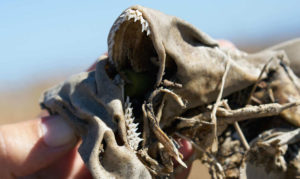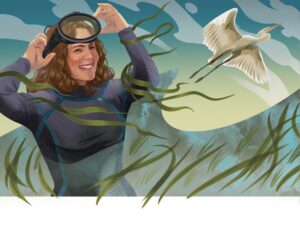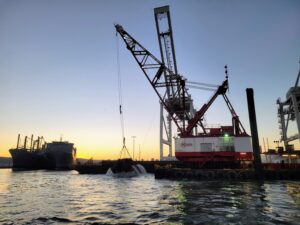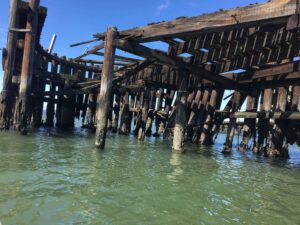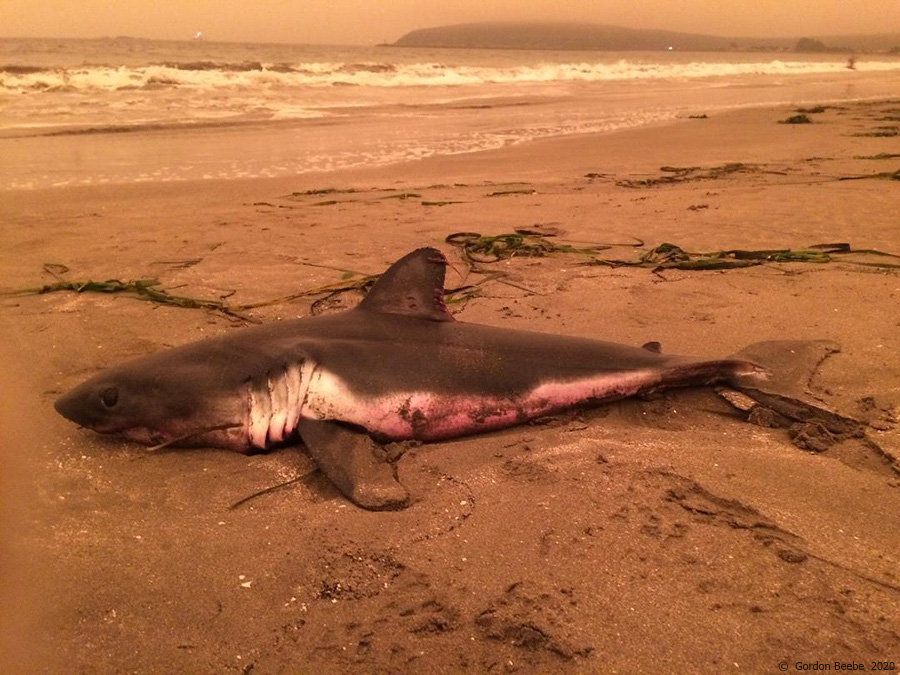
A North Bay birder on a field trip to the coast on September 9 found a four-foot salmon shark washed up dead at Doran Beach, in Bodega Bay. It’s the second stranding of a salmon shark in the last month in Northern California, after a young shark washed up in Half Moon Bay in late August, and sixth in California this summer, according to the California Department of Fish and Wildlife.
Young salmon sharks strand regularly in California in the summer, generally after bacterial infections in the sharks’ brains lead to them becoming disoriented. In an email, California Department of Fish and Wildlife Deputy Director of Communication Jordan Traverso wrote that the strandings were “nothing out of the ordinary.”
In the last few years scientists have noticed the bacterial infections that once killed only salmon sharks also affecting other species, including thresher sharks, mako sharks, and a great white shark. But, it’s hard to say what that means, said Chris Lowe, who directs the Shark Lab at CSU Long Beach. It could mean the bacteria affecting salmon sharks is now jumping hosts. It also could mean that shark populations are recovering from overfishing, and we’re seeing natural deaths as more sharks interact and spread disease, and there are more sharks, dead and alive, for us to see.
“From the pure science standpoint, what we’re seeing is kind of what you expect in populations that are recovering,” Lowe said. “It’s always sad when animals die but this happens all the time in nature. What we really have to keep an eye on are things we might be inducing, things we can fix. Humans have done a lot to the environment. Sometimes it is our bad, and we have to own it and do our best to fix it.”
Traverso said all of the salmon sharks examined this summer had infections of Carnobacterium maltaromaticum, a bacteria found naturally in healthy sharks as well as in food, especially meat and dairy. The bacteria has been approved by the FDA and USDA as a preventative agent in processed meat, and is used as a probiotic in farmed fish, according to a 2018 master’s thesis by Laura Martinez-Steele, then a graduate student in Lowe’s lab and now a fish hatchery manager in San Diego. Martinez-Steele sequenced the genomes of Carnobacteria from nine stranded sharks and, after comparing it to the genomes of Carnobacteria from food, found a distinct genetic signature of the shark-disease-causing strain.
Martinez-Steele’s thesis hypothesizes that since the bacteria is naturally common in healthy sharks, and since all the sharks that strand are young, they might pick up the bacteria in utero.
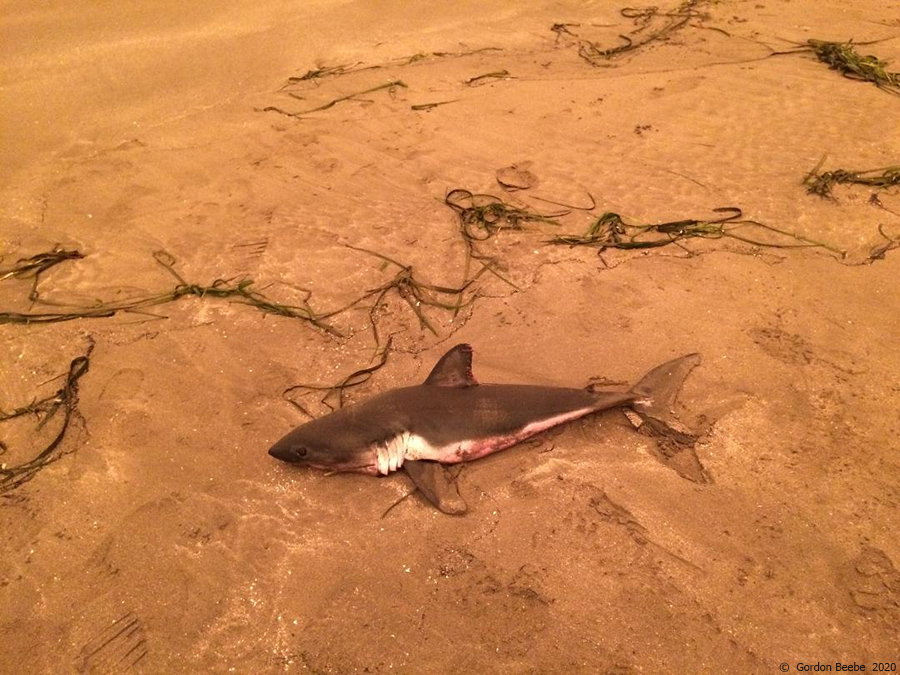
It’s still unclear what converts the bacteria from healthy and normal to infectious, the thesis says. But based on dissections, Martinez-Steele wrote that it appears the bacteria spread through the inner ear to infect the sharks’ cerebrospinal fluid and brains. Lowe said ocean conditions might also play a role in spreading disease if they cause sharks to move or congregate in certain areas, the same way cold weather might force people indoors and raise the risk of spreading illness. This summer featured unusually warm ocean temperatures off the California coast, followed by a burst of upwelling that led to rapid cooling. Some scientists have suggested such “thermal shock” could weaken the immune systems of young sharks, allowing infections.
“It just kind of goes to show, we really know very little about marine fish disease, or the things that kill them, naturally,” Lowe said. “We see predation events, we see that humans are a major predator. But we have very little idea what diseases sharks get.”

